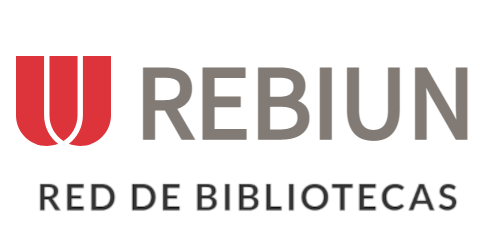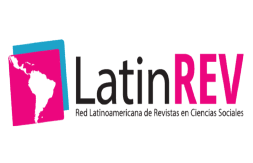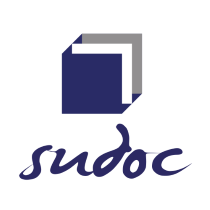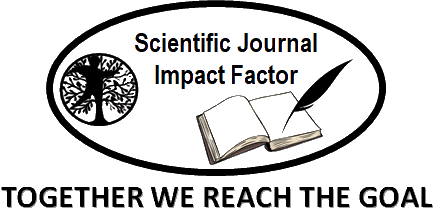The Use of Podcasts to Develop Speaking Skills in A2 Level Students
DOI:
https://doi.org/10.69639/arandu.v12i3.1385Palabras clave:
podcast, speaking, english skillsResumen
Speaking skills are regarded as one of the most important aspects in an ESL (English as a Second Language) classroom, even though the learning process presents challenges that teachers face when aiming to improve students' speaking abilities, such as pronunciation, fluency, and lexical resources during communication. However, teachers are continually searching for new approaches or techniques to help develop students' speaking skills. Therefore, this article aims to assess the effectiveness of podcasts as a tool to improve speaking skills in A2-level students. To achieve this goal, the author used a mixed-methods research design, incorporating both qualitative and quantitative components that facilitate a better understanding of data collection, analysis, and discussion of results. This approach helps establish the relationship between the independent variable “Podcasts” and the dependent variable “speaking skills.” The study aimed to determine how effective podcast activities are, assess their impact on speaking skills, and explore learner attitudes to gain a deeper understanding of speaking skill development in A2-level students using podcasts. The population consisted of 25 students selected through the systematic sampling method; their ages ranged from 11 to 12 years old, and all were at the A2 level. Data were collected using instruments such as pre- and post-surveys and pre- and post-tests for quantitative data, while the surveys also provided qualitative insights. The data were analyzed both qualitatively and quantitatively. The results showed that the podcast sessions had a significant and positive impact on participants' speaking skills.
Descargas
Citas
CEFR. (2020). Common European Framework of Reference for Language: Learning, teaching, assessment-Companion volume. Council of Europe.
Chaves, B., & Peña:, C. d. (2023). Podcasts’ effects on the EFL classroom: a socially relevant intervention. Springer, 10(20), 11-13. https://doi.org/https://doi.org/10.1186/s40561023002411
Conroy, B., & Kidd, W. (2022). Using Podcast to cultivate learner-teacher rapport in higher education settings. 1-11. https://doi.org/https://doi.org/https://doi.org/10.1080/14703297.2022.2102528
Dewi, S. A., Ahmad, & B, Y. (2021). Exploring Students´ Perception on Learning Pronunciation Through Podcast-Assisted in ELF Classroom. IDEAS: Journal on English Language Teaching and Learning, Linguistics and Literature, 9(2), 103-111.
Fers, H., & Mimouni, A. (2022). The use of Technological devices to foster EFL Students Oral skills. Ibn Khaldoun University of Tiaret, Algeria, 6.
Fitria, U., Vianty, M., & Petrus, I. (2015). Using Podcast to Improve Students' Listening and Speaking Achievements. The Journal of English Literacy Education: The Teaching and Learning of English as a Foreign Language, 2(1), 55-68.
Gómez, F., & Palma, E. (2020). El podcast en el desarrollo de las habilidades orales en estudiantes de Inglés como lengua extranjera. EDUCERE - Universidad de los Andes., 239.
Gunasekare, U. (2016). Mixed research methods as the third Research Paradigm: A literature review. International Journal of Science and Research, 4, 362.
Koçak, A., Alagözlü, & Nuray. (2021). The Effect of Learner Podcasts on EFL Students’ Speaking Development. The Journal of Language Teaching and Learning, 11(2), 18-41.
Konig, L. (2021). Podcast in higher education: Teacher enthusiam increases students´exciment, interest, enjoyment, and learning motivation. Educational studies, 47(5), 627-630. https://doi.org/https://doi.org/https://doi.org/10.1080/03055698.2019.1706040
Makwana, D., Engineer, P., Dabhi, A., & Chudasama, H. (2023). Sampling Methods in Research: A Review. International Journal of trned of Scientific Research and Development, 7(2456-6470), 762-768. https://doi.org/URL:www.ijtsrd.com/papers/ijtsrd57470.pdf
Márquez, M. (2022). Flipped classroom, ICT and Dictionary: A B-learning System for the iniciation to study of Latin . Springer, 966-986.
Ommnia Latif, I. (2024). Using mobile assisted Langua learning to enhance EFL Oral language skills of Faculty of Education English Majors. Journal of research in Curriculum, Instruction and Educational Technology., 10(2), 9.
Sandoval, M., & Díaz, C. (2020). Podcast- based lessons: a useful tool to improve university students´ descriptive oral skills. Revista comunicación, 29(1), 53.
Sayadi, M., & Mashhadi Heidar, D. (2018). The impat of using podcasts on Irian autonomous/non autonomous EFL learners' listening comprehension ability at pre-intermediate level. International Journal of Research in English Education, 3(3), 72-82.
Shahid, S., & Ali, Z. (2017). Effects of video-podcasts on listening comprehension of Saudi EFL learners. European Journal of English Language Teaching.
Shannon, P. (2016). Making Paradigms Meaningful in Mixed Methods Research. Journal od Mixed Methods Research, 10(4), 319-334. https://doi.org/10.1177/1558689815575861
Vainieri, I., Thackeray, L., Hillman, S., Pérez, A., & Roberts, R. (2023). Evaluating podcasts as a science communication assessment for postgraduate students. Tailor, 61(6), 1446. https://doi.org/https://doi.org/https://doi.org/10.1080/14703297.2023.2267047
Wissam Abu, S., & Ahmad Issa, A. (2022). The Effect of using Podcasts and Vodcasts on developing ninth grader´s speaking skills of the English Language. BIoLAE-Journal, 4(3), 246.
Wulan, O. (2018). The effect of implementing Podcast in enhancing Students´ Speaking Achievement in the fully Digital Era. PEOPLE Int. J. Soc. Sci, 3(3), 1173-1185.
Publicado
Cómo citar
Número
Sección
Licencia
Derechos de autor 2025 Sheyla Fernanda Pintado Gallegos, Jacqueline Elizabeth López López, Josue Reinaldo Bonilla Tenesaca

Esta obra está bajo una licencia internacional Creative Commons Atribución 4.0.





















